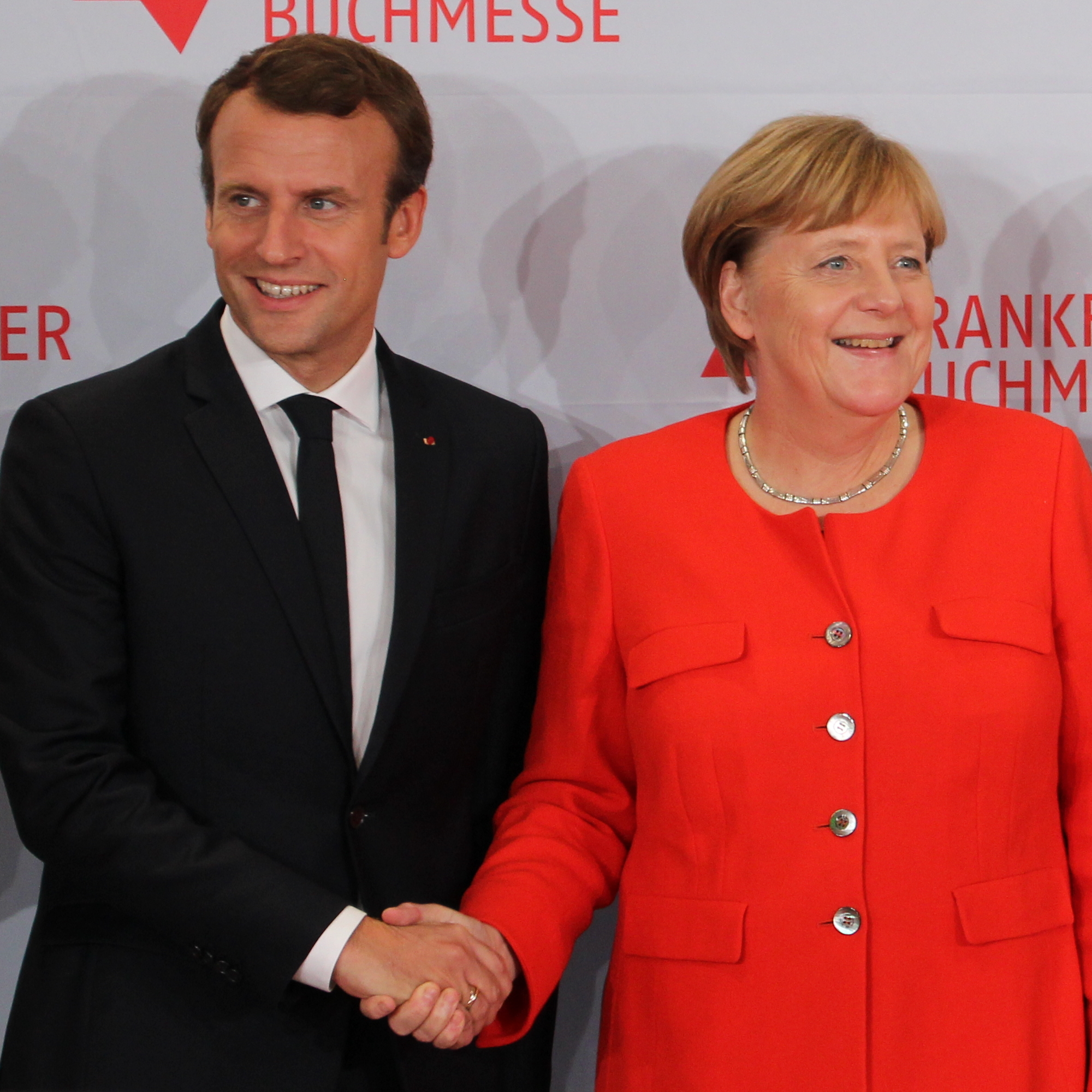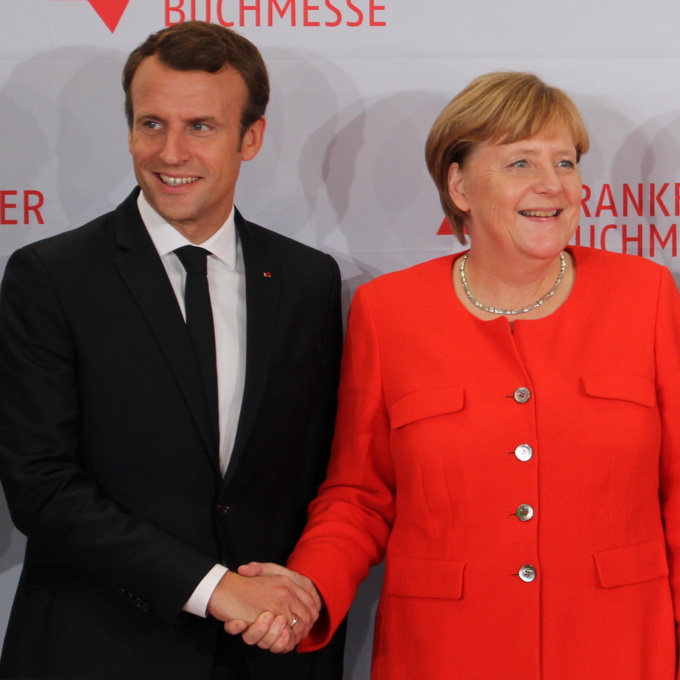Under the new Treaty of Aachen, the countries agreed to deepen cooperation in five areas, including the spheres of European and domestic policy, anti-terrorism security and the fight against organized crime, as well as the economy, education, environmental protection and social security. The priority of the joint diplomacy is inclusion of Germany in the UN Security Council as a full member. To coordinate the actions of the country, they are creating a joint Defense and Security Council and, in the event of armed aggression, undertake to render each other all-round assistance and support.
However, once the papers were signed, protest voices were heard from all over the united Europe. It’s not a surprise, because all this looked like the two main countries of the European Union signed a bilateral agreement on the integration of bypassing the EU.
The overall opinion was summed up by the Prime Minister of Italy Giuseppe Conte: "Germany and France scoff at Italy and the European Union, concluding an agreement on providing Berlin with a status of the permanent member of the UN Security Council," he said on 25 January in an interview with the Italian media. - They think exclusively about their national interests, but Italy has, since the 1990s, supported the idea that the EU itself should become a permanent member of the UN Security Council, not one of its members,” he stressed, adding: “Of course, our allies cannot seriously consider that we will sit quietly at the table, where support decisions made by others."
In principle, there is nothing particularly new in the Aachen Treaty. The two-speed Europe concept has been debated for many years. And in February 2017, at a press conference on the results of the EU summit in Malta, Chancellor Merkel spoke out about this with all certainty: “The history of recent years has shown that there will continue to be different speeds in the EU, that not everyone will participate in those or other integration steps,” she said.
Previously, Bulgaria, the Baltic countries, Hungary, Poland, Romania were alarmed when they heard the phrase. The wording “two-speed Europe” was perceived there almost as a curse, so leaders of Western Europe soon stopped using it. But the European Union did not become united by their mantras about “united Europe”. Contradictions between countries and even entire EU regions remain to this day: Western Europe does not want to subsidize Eastern Europe, which, in turn, does not want to lose subsidies. At that, Southern Europe does not want to pay its debts; on the contrary, it wants to continue to live in debt. Some EU countries refuse to accept refugees, others (like Italy, for example) are outraged by their unwillingness to help reduce the migration burden. That is why the same Bulgaria, the Baltic countries, Hungary, Poland, Romania and others were immediately worried after the Aachen Treaty was signed.
The German government spokesman Steffen Seibert tried to reassure them: “The agreement between Germany and France is not directed against anyone and does not affect the intensive partnership and friendship with other European countries,” he said at a briefing in Berlin on January 25. As for Conti’s statement about Germany’s membership in the UN Security Council, Seibert said, “Berlin’s desire to become a permanent member of the UN Security Council was a long-term goal of German foreign policy. Article 8 of the Aachen Treaty states that Germany and France intend to represent European position on global international crises in the UN Security Council.”
Nevertheless, the director of the Eurocontinent Center for Geopolitical Studies in Brussels, Professor at the University of Paris Sorbonne Pierre-Emmanuel Thomann considers the Aachen Treaty a "geopolitical regression" in relation to the Élysée Treaty. According to him, “if Paris and Berlin want to get close now, this is a sign that in reality they are trying to stop the crisis and the growing contradictions. France and Germany today have different end goals. This treaty serves to hide Franco-German differences. At the same time, the tandem no longer has the influence that it had in Europe until the big enlargement of the EU in May 2014."
source: reuters.com, dw.de
However, once the papers were signed, protest voices were heard from all over the united Europe. It’s not a surprise, because all this looked like the two main countries of the European Union signed a bilateral agreement on the integration of bypassing the EU.
The overall opinion was summed up by the Prime Minister of Italy Giuseppe Conte: "Germany and France scoff at Italy and the European Union, concluding an agreement on providing Berlin with a status of the permanent member of the UN Security Council," he said on 25 January in an interview with the Italian media. - They think exclusively about their national interests, but Italy has, since the 1990s, supported the idea that the EU itself should become a permanent member of the UN Security Council, not one of its members,” he stressed, adding: “Of course, our allies cannot seriously consider that we will sit quietly at the table, where support decisions made by others."
In principle, there is nothing particularly new in the Aachen Treaty. The two-speed Europe concept has been debated for many years. And in February 2017, at a press conference on the results of the EU summit in Malta, Chancellor Merkel spoke out about this with all certainty: “The history of recent years has shown that there will continue to be different speeds in the EU, that not everyone will participate in those or other integration steps,” she said.
Previously, Bulgaria, the Baltic countries, Hungary, Poland, Romania were alarmed when they heard the phrase. The wording “two-speed Europe” was perceived there almost as a curse, so leaders of Western Europe soon stopped using it. But the European Union did not become united by their mantras about “united Europe”. Contradictions between countries and even entire EU regions remain to this day: Western Europe does not want to subsidize Eastern Europe, which, in turn, does not want to lose subsidies. At that, Southern Europe does not want to pay its debts; on the contrary, it wants to continue to live in debt. Some EU countries refuse to accept refugees, others (like Italy, for example) are outraged by their unwillingness to help reduce the migration burden. That is why the same Bulgaria, the Baltic countries, Hungary, Poland, Romania and others were immediately worried after the Aachen Treaty was signed.
The German government spokesman Steffen Seibert tried to reassure them: “The agreement between Germany and France is not directed against anyone and does not affect the intensive partnership and friendship with other European countries,” he said at a briefing in Berlin on January 25. As for Conti’s statement about Germany’s membership in the UN Security Council, Seibert said, “Berlin’s desire to become a permanent member of the UN Security Council was a long-term goal of German foreign policy. Article 8 of the Aachen Treaty states that Germany and France intend to represent European position on global international crises in the UN Security Council.”
Nevertheless, the director of the Eurocontinent Center for Geopolitical Studies in Brussels, Professor at the University of Paris Sorbonne Pierre-Emmanuel Thomann considers the Aachen Treaty a "geopolitical regression" in relation to the Élysée Treaty. According to him, “if Paris and Berlin want to get close now, this is a sign that in reality they are trying to stop the crisis and the growing contradictions. France and Germany today have different end goals. This treaty serves to hide Franco-German differences. At the same time, the tandem no longer has the influence that it had in Europe until the big enlargement of the EU in May 2014."
source: reuters.com, dw.de



















